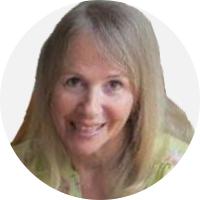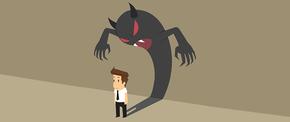The views expressed in our content reflect individual perspectives and do not represent the authoritative views of the Baha'i Faith.
This is a true story—I lived in a house on the banks of a river in New Zealand, when my wealthy neighbors told me they were leaving on holiday.
Shortly after their departure, there was a knock on my door. The dark-skinned Maori man who stood there was dressed in rough, unkempt clothes, and I noticed that he had dirt beneath his nails. He told me that he had been at my neighbor’s house, where he claimed to have regular business with the owner, and expected to work there today, but had received no answer to his call. He began to ask questions; where were my neighbors, when would they return?
I responded cautiously that I didn’t know exactly where or when, but even as I answered I felt the first fingers of wariness. I didn’t know this man or his intentions; I had never seen him before; he was a stranger in a neighborhood where people were very concerned about security. What should I do?
We know that the extremes of wealth and poverty affect us all. The Universal House of Justice highlighted the problem in its 1985 message called The Promise of World Peace:
The extremes of wealth and poverty in the world are becoming ever more untenable. As inequity persists, so the established order is seen to be unsure of itself, and its values are being questioned. The inordinate disparity between rich and poor, a source of acute suffering, keeps the world in a state of instability, virtually on the brink of war. Few societies have dealt effectively with this situation.
It seemed unlikely that this dirty, poorly-dressed man would have any business with my neighbors, or that they would thank me for volunteering information about their home or absence. I felt sure—if it was even correct that they knew him—that they would have previously told him precisely as much, or as little, as they believed was warranted.
Once he was satisfied that I knew no more, I closed the door and walked to a window from where I could watch. Immediately I felt alarm when, instead of walking to our front entrance, he turned in the opposite direction and slipped through a side gate. How did he even know that gate was there? I observed as he cut directly across our lawn, jumping over the neighbor’s low hedge, to crouch down on the other side, completely hidden from sight.
My mind raced; he now knew the neighbors were away, yet he had still returned to their house. He didn’t leave my home by the normal route but had crossed our property, jumped the hedge, and then hidden himself. What reason could he have for concealing himself? I was unsure what to do.
Was I being alarmist? Was it likely that he did indeed have regular business with my wealthy neighbor? Was there a valid reason why he would have known of that side route, gone to it without hesitation, and chosen to hide? Was I being influenced in some way by his ethnicity or rough physical appearance? I examined my motives, and hoped this wasn’t true, but it worried me that some inherent bias might have swayed me from a more reasonable explanation. The practice of calling oneself to account—of examining our motives and behavior—is an essential aspect of spiritual development for a Baha’i. In The Hidden Words, Baha’u’llah advised:
O Son of Being! Bring thyself to account each day ere thou art summoned to a reckoning; for death, unheralded, shall come upon thee and thou shalt be called to give account for thy deeds. – p. 11.
After internally wrestling with these issues, I decided to act in the same way as if it was my own property under threat, so I phoned the police and explained my concern. Soon an officer arrived at my doorstep, asking for more information. Then he headed quickly in the direction of my neighbors’ home, as I waited in growing alarm.
Shortly the officer returned. Surprisingly, he was smiling. He explained that the man was a gardener, employed by my neighbors, who had arrived to work at his usual time, only to find that his employer was not available to give the usual instructions for his day’s activity, or to open the locked tool shed so that he could access his usual tools. In the absence of any set work schedule, and without these tools, he had decided to remove by hand the weeds that were growing along the base of our shared hedge line.
I was stunned. In an instant, what had seemed highly suspicious had been reduced to total clarity. With just one short piece of information a situation had been transformed from highly unlikely and potentially dangerous, to unremarkable and ordinary.
I would from then on be so thankful for this experience, which powerfully illustrated the importance of investigating the truth of a situation for myself, to look into all things with a seeing eye … and not jump to apparently obvious conclusions. I learned a profound lesson.
In my initial meeting with the gardener—for in retrospect he was no longer a potential house-breaker, robber, thief or worse; just an ordinary, hardworking gardener—the easiest option would have been to ignore the situation completely, deciding it was none of my business to get involved in my neighbor’s affairs, to plead ignorance of the matter and politely but firmly close the door to my unexpected visitor.
But what if this person had actually been a thief, and was planning on stealing valuable and much-loved family heirlooms from my neighbors? What if another family member was, without my knowing it, still in the home, where they could be discovered by the potential intruder, and brutally attacked?
This event remained in my consciousness from that point on, reminding me to pay thoughtful attention to future situations I might encounter, to reflect on what I was learning along the way, avoiding the temptations of judgments based on prejudice and half-truth, but rather to investigate reality for myself.

















Comments
Sign in or create an account
Continue with Facebookor